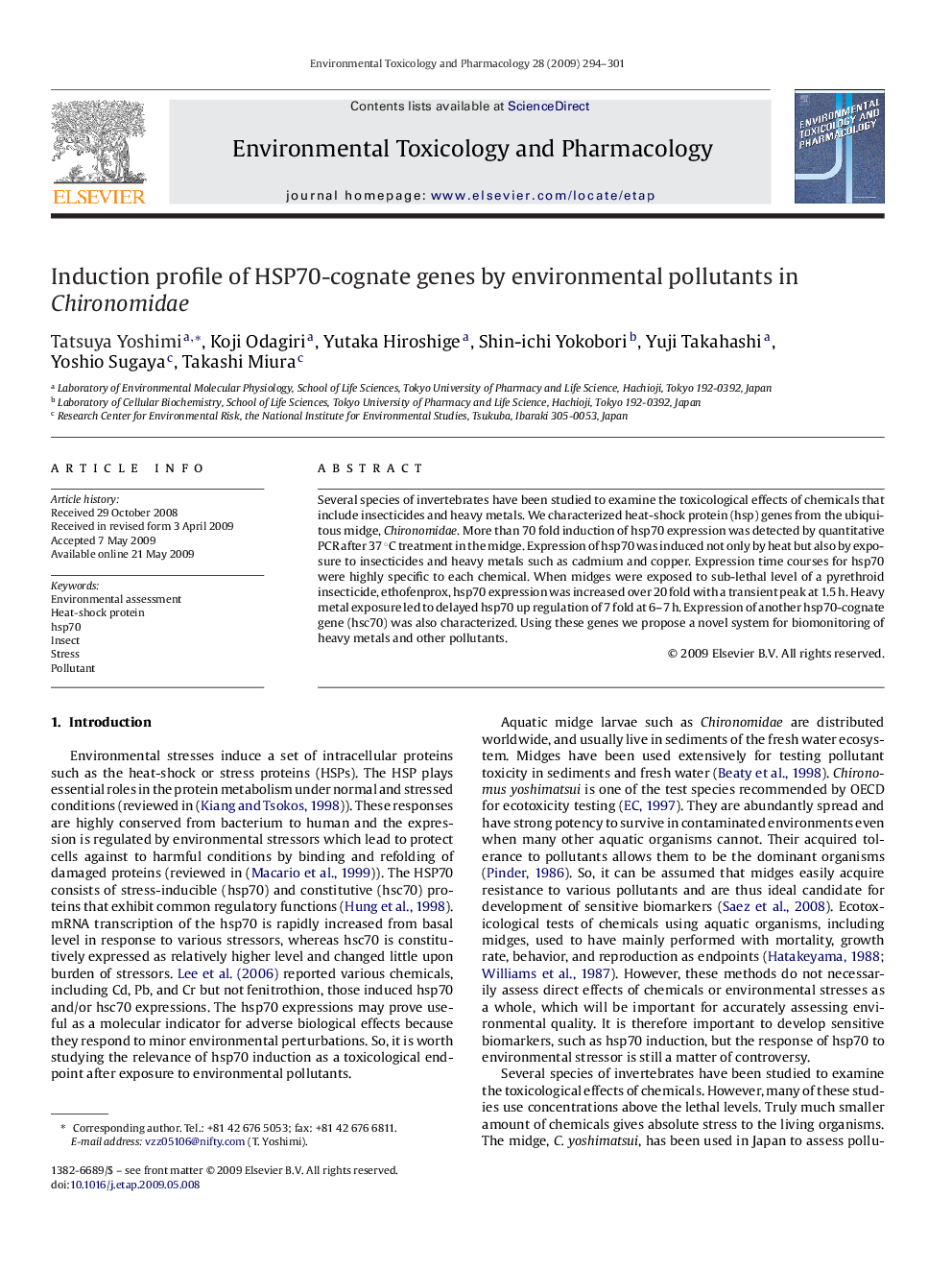| Article ID | Journal | Published Year | Pages | File Type |
|---|---|---|---|---|
| 2584309 | Environmental Toxicology and Pharmacology | 2009 | 8 Pages |
Several species of invertebrates have been studied to examine the toxicological effects of chemicals that include insecticides and heavy metals. We characterized heat-shock protein (hsp) genes from the ubiquitous midge, Chironomidae. More than 70 fold induction of hsp70 expression was detected by quantitative PCR after 37 °C treatment in the midge. Expression of hsp70 was induced not only by heat but also by exposure to insecticides and heavy metals such as cadmium and copper. Expression time courses for hsp70 were highly specific to each chemical. When midges were exposed to sub-lethal level of a pyrethroid insecticide, ethofenprox, hsp70 expression was increased over 20 fold with a transient peak at 1.5 h. Heavy metal exposure led to delayed hsp70 up regulation of 7 fold at 6–7 h. Expression of another hsp70-cognate gene (hsc70) was also characterized. Using these genes we propose a novel system for biomonitoring of heavy metals and other pollutants.
